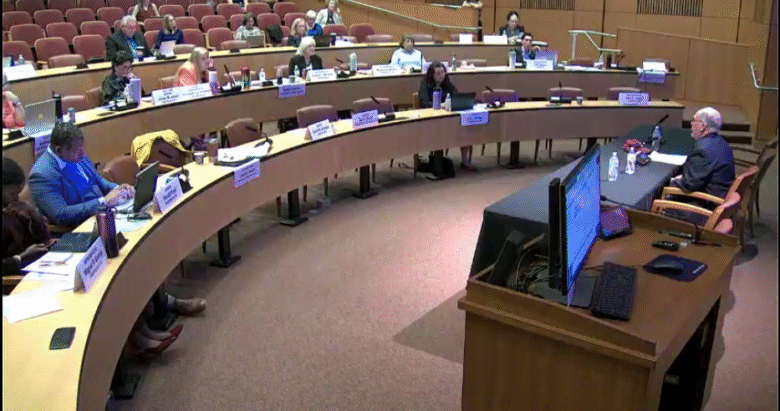New Mexico Lawmakers on Tuesday heard a presentation about the potential harms of private equity’s role in healthcare, something many New Mexico Democrats have argued has siphoned dollars away from addressing New Mexico’s healthcare needs while profiting out-of-state interests.
The Legislative Health and Human Services Committee heard the presentation from Olivia Kosloff, a senior fellow at the American Economic Liberties Project, a progressive-leaning nonprofit, who argued that while private equity is often seen as a solution to saving struggling hospitals and infrastructure, private equity, by design, is focused on turning a quick profit.
“This incentivizes value extraction, rather than value creation. Private equity shops are not sticking around to make long-term bets about keeping communities healthy or serving, for example, an elderly rural population. Instead, they’re making money with the most extractive, quickest means possible,” Kosloff said. She added that private equity has a particularly large role to play in healthcare in New Mexico, citing data from The Private Equity Stakeholder Project showed that 36% of hospitals and more than 35% of nursing homes in New Mexico are owned by private equity, making it the state with the highest proportion of hospitals and nursing homes owned by private equity.
In her presentation, Kasloff cited national studies that showed private equity hospitals and care facilities provide a worse quality of care to patients than other hospitals. She cited a 2023 national study that showed Medicaid beneficiaries experienced a 25% jump in hospital-acquired conditions at hospitals owned by private equity, such as falls and certain infections. She also cited a study that showed mortality rates rose at emergency departments acquired by private equity by as much as seven deaths per 10,000 visits.
Kasloff also argued that mergers and acquisitions of healthcare facilities by private equity led to higher costs for hospitals and other medical facilities, and cited a 2024 national survey that found that half of physicians surveyed said a merger or acquisition reduced their satisfaction with their jobs.
In her presentation, Kasloff applauded certain measures taken by the state, such as the passage of House Bill 586, which affords the New Mexico Healthcare Authority the power to deny or approve mergers or acquisitions of hospitals by private equity. However, she said more needs to be done.
Some of the measures advocated by Kasloff include expanding the oversight in House Bill 586 to other medical entities sought by private equity, such as physician and dentistry practices, as well as nursing homes, enacting a law that prohibits corporations and other non-physician-led organizations from managing medical practices and using current state law that allows the Healthcare Authority and the Office of the Superintendent of Insurance to attach conditions onto any approval of a merger or acquisition such as commitments for ongoing patient care and staff ratios to limit job losses.
Some lawmakers disagreed with Kasloff’s conclusion. State Rep. John Block (R-Alamogordo) claimed that Kasloff’s presentation was not impartial and was based more on ideology than independent economic analysis.
Block argued that the information presented claimed hospitals and other entities acquired through private equity are often already in distress before they were acquired.
“Rural hospitals across the country have survived because investors provide capital for payroll technology and debt restructuring, not because of Washington grants,” he said. Block added that measures to ban the corporate practice of medicine and increase oversight of acquisitions would choke off capital to hospitals in rural areas.
“Private equity isn’t the enemy of healthcare; it’s often the last lifeline,” Block said.
Editor’s note: New Mexico Political Report has been investigating private equity healthcare facilities as part of an ongoing series exploring healthcare quality in New Mexico, including this September report documenting how Genesis Healthcare, which operates 26 facilities in the state, sought bankruptcy protection to avoid paying hundreds of millions in malpractice settlements and staffing costs after allegedly providing substandard care that resulted in wrongful deaths and neglect at its nursing homes.

